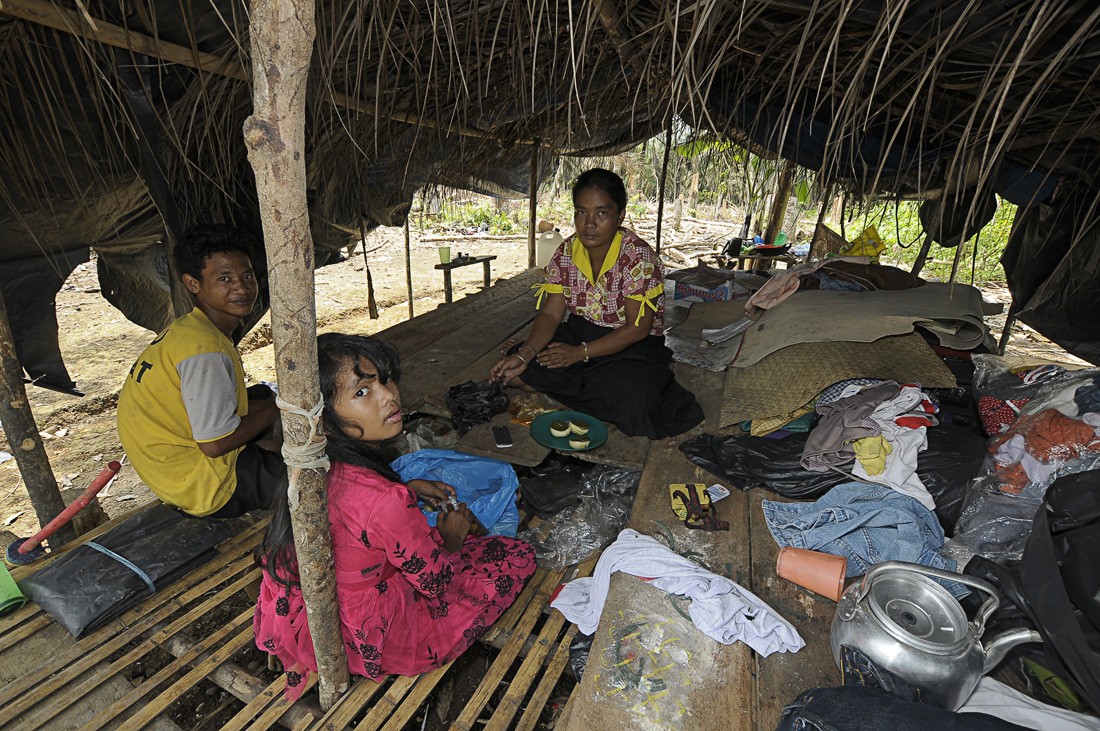Popular Reads
Top Results
Can't find what you're looking for?
View all search resultsPopular Reads
Top Results
Can't find what you're looking for?
View all search resultsGovernment vows to engage more indigenous groups in forest management
The government on Monday once again promised to involve many forest-dependent groups, including indigenous people like the Orang Rimba, in its ongoing social forestry program, which was launched in 2015 to allow communities to utilize state forest land for 35 years.
Change text size
Gift Premium Articles
to Anyone
T
he issue of the Anak Dalam tribe, also known as the Orang Rimba, who traditionally live deep in the forest in Jambi in small nomadic groups, came into the spotlight in the past few years after they were forced to leave their land because of uncontrolled conversion of natural forest.
Some of the nomadic tribe members were reportedly forced to live in huts along the trans-Sumatra toll road, which runs between the Sarolangun and Merangin regencies, near their former home in the forest.
The Orang Rimba are not the only ones excluded from their forests, with the government admitting that such indigenous groups have been marginalized in the past few decades when it comes to forest management.
The government on Monday once again promised to involve many forest-dependent groups, including indigenous people like the Orang Rimba, in the ongoing social forestry program, which was launched in 2015 to allow communities to utilize state forest land for 35 years.
Under the social forestry policy, people living inside and near forests would be granted some amount of land in the forests to be used as hutan kemasyarakatan (community forests), hutan desa (village forests), hutan tanaman rakyat (community plantation forests) and hutan adat (customary forests).
As of now, more than 2.5 million hectares of forests across the country have been handed over to about 500,000 families for them to manage. This year, the government aimed to hand over another 1.5 million ha of forest land to about 100,000 families to help improve their welfare.
This figure, however, is still far less than President Joko “Jokowi” Widodo's target of handing over 12.7 million ha of state forests to forest-dependent Indonesians.
Environment and Forestry Minister Siti Nurbaya Bakar, who is in charge of the social forestry program, said her office has identified the remaining millions of hectares of land.
Yet, she said it would take three to four years to complete the program.
Currently, roughly 9.2 million families live inside and near forests nationwide, about 1.7 million of which are poor.
Siti said the government has seen positive results in the first three years of the program's implementation. For instance, the forest land recipients are able to earn an average of Rp 2 million (US$140.44) a month from agroforestry.
“Previously, people played cat and mouse [with authorities or companies] to harvest forests, but now we provide them with forest land to allow themselves manage and harvest forests,” Siti said on Monday.
Orang Rimba tribe member Mijak Tampung said the program has yet to benefit his group in the Makekal Hulu forest in Jambi.
Mijak also criticized a policy by the Social Affairs Ministry that offers houses to Orang Rimba in what Mijak said was an apparent effort to force the indigenous tribe members to leave their forest.
The ministry had built hundreds of such houses, but Orang Rimba decided to abandon them mere months after moving in.
“The forest is our home. We do not need another one,” he told The Jakarta Post, adding that the government should instead provide them better access to education and health services. (ipa)










